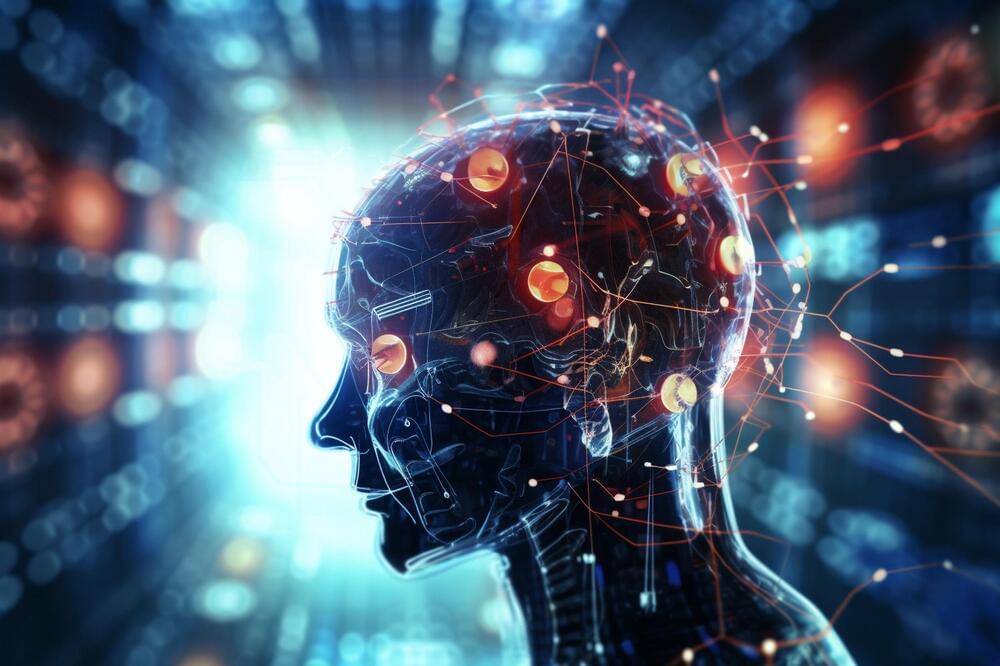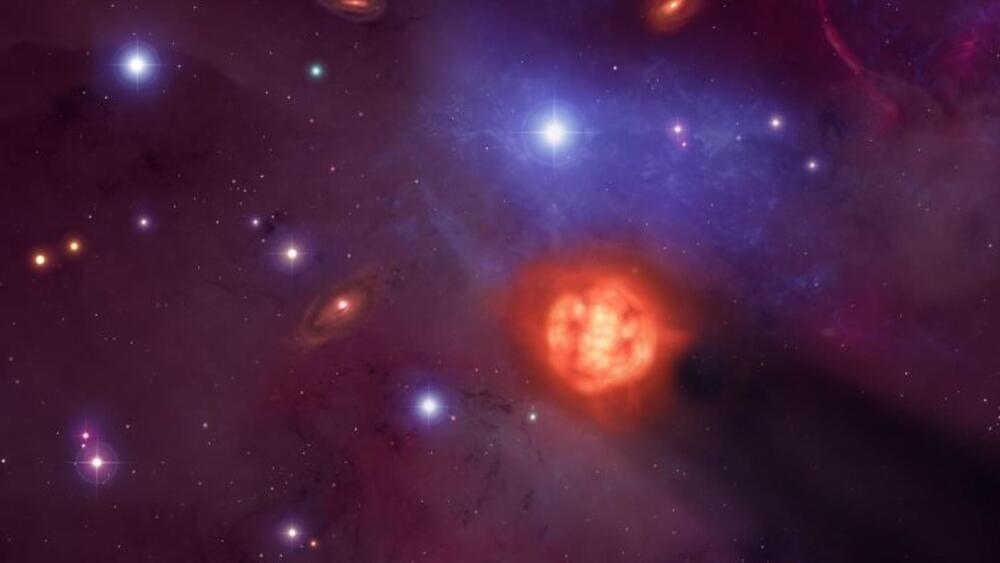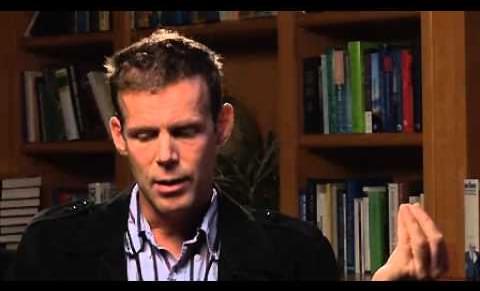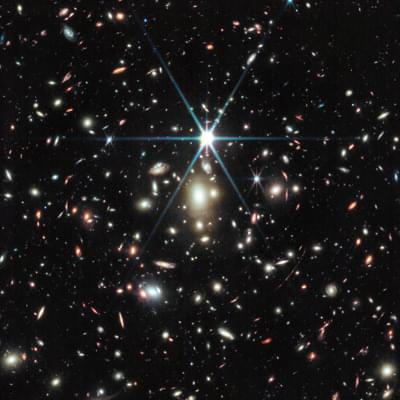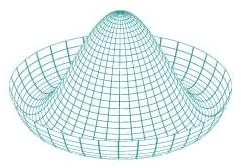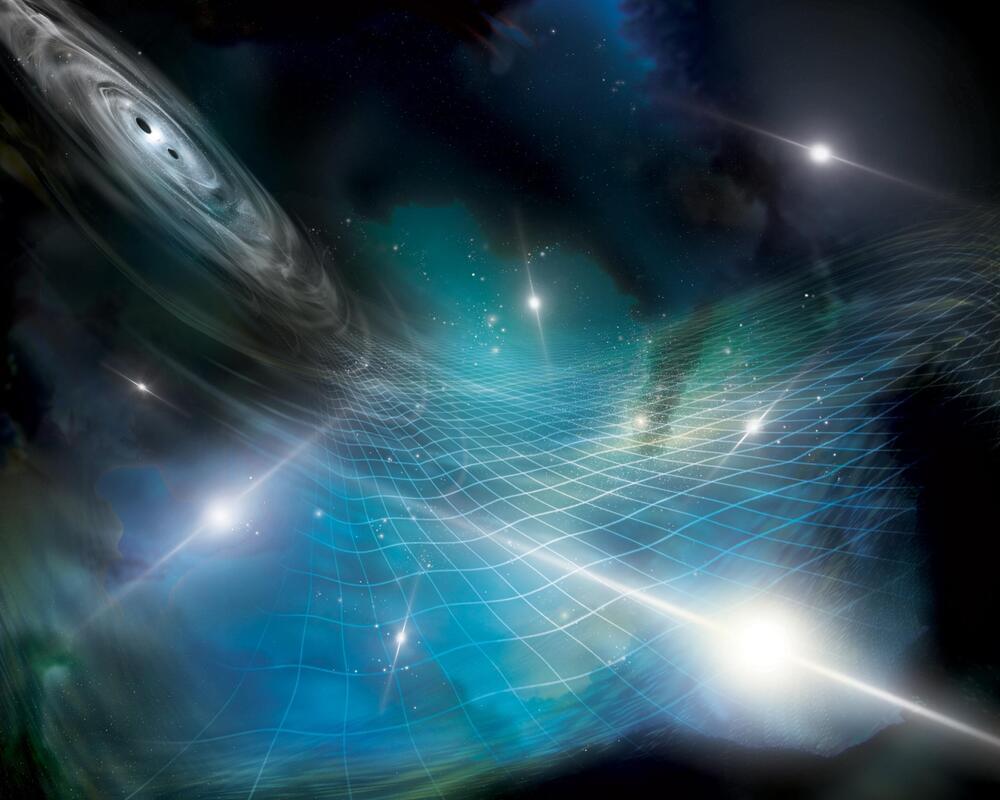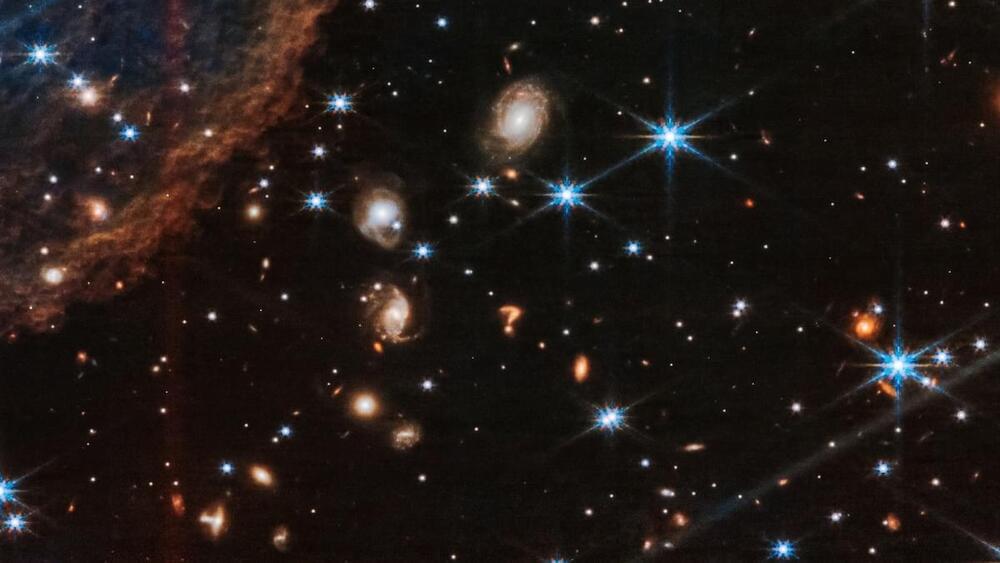
The hints pointing to two galaxies are found in the question mark’s strange shape. There are two brighter spots, one in the curve and the other in the dot, which could be the galactic nuclei, or the centers of the galaxies, Britt says. The curve of the question mark might be the “tails” being stripped off as the two galaxies spiral toward each other.
“It’s very cute. It’s a question mark … But you can find the colons and semicolons, and any other punctuation mark, because you have 10,000 little smudges of light in each image taken every half hour,” says David Helfand, an astronomer at Columbia University. The sheer number of shining objects we find are bound to create some serendipitous images, and our brains have evolved to find those patterns, he says.
Astronomers have seen similar objects closer to home. Two merging galaxies captured by the Hubble Space Telescope in 2008 also look like a question mark, just turned 90 degrees.

